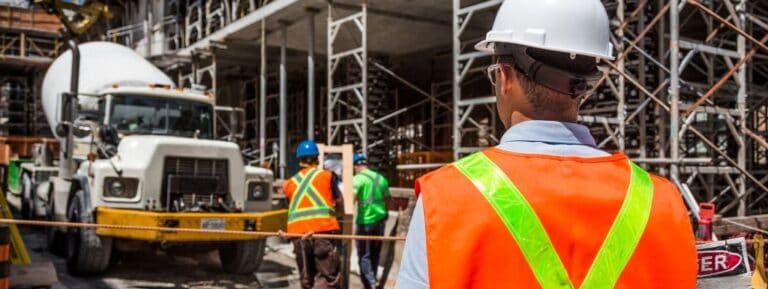My building contract does not provide for due dates for progress payments – am I still entitled to progress payments? I’ve been served with a payment claim under my building contract – now what? I need construction law advice – I’ve not been paid the amount the adjudicator has awarded me.
As building and construction law experts, these are examples of the type of questions we routinely get asked by some of our clients. We’ve compiled a list of some of the common questions we get asked. In this article, we explore the answers to some of these common questions.
My building contract does not provide for a due date for progress payments – am I still entitled to progress payments?
One of the objectives of the Building Industry Fairness (Security of Payment) Act 2017 (BIF Act) is to ensure that those individuals that carry out building and construction work or provide related goods and services get paid. This object is achieved, in part, by granting builders a statutory entitlement to progress payments, regardless of whether or not the construction contract makes provision for progress payments.
Accordingly, if your building contract is silent on due dates for progress payments, you can rely on clause 73 (b) of the BIF Act. Pursuant to clause 73 (b) of the BIF Act, if a construction contract does not provide for due dates for progress payments, the time for payment will be 10 business days from the date a payment claim was received. The BIF Act defines a business day from 12:00 am – 11:59 pm and does not include weekends, public holidays, the date the notice was given or the period from 22 December to 10 January. It is important to note that in order to enjoy the statutory entitlement to progress payments afforded by the BIF Act, you must issue a valid payment claim.
For further information, please see our answer to the question below, “What is a payment claim?”.
What is a payment claim?
A payment claim is a written document that requests payment for construction work or related goods or services. Prior to the enactment of the BIF Act a payment claim had to include an endorsement that it was made pursuant to legislation. This is no longer the case – under the BIF Act a claim for payment is considered a valid payment claim if it is in writing and:
• identifies the construction work or related goods and services;
• specifies the amount claimed;
• requests that the claimed amount be paid (a tax invoice satisfies this condition); and
• be the only payment claim served for the relevant reference date.
You must also ensure that your payment claim is properly served upon the correct entity or individual in accordance with the terms of the building contract.
It is important to note that if your tax invoice meets the requirements set out above, it will be considered as a payment claim. Accordingly, it is good practice to have a standard template tax invoice that complies with the payment claim requirements of the BIF Act. By doing this, each tax invoice you issue will be considered a payment claim – the advantage of this is that you will be entitled to rely on the BIF Act to enforce your right to payment.
I’ve been served with a payment claim – now what?
• where you agree with the amounts being claimed, you must pay the claimed amount in full by the due dates; or
• where you disagree with the amounts being claimed, you must respond to the payment claim by properly serving a payment schedule.
If you fail to issue a payment schedule, you will become liable to pay the amount claimed under the payment claim. Furthermore, if you hold a license issued by the Queensland Building and Construction Commission, you may also be subject to disciplinary action under the Queensland Building and Construction Commission Act 1991 QLD.
If you do not pay the amount owed on or before the due date, the builder can take steps to recover the unpaid amounts as a debt in Court or apply for adjudication. In addition, the builder may serve you with written notice of intention to suspend works.
For further information, please see our answer to the question below, “What is a payment schedule?”.
What is a payment schedule?
If you receive a payment claim you must, either:
• pay the claimed amount in full by the due date; or
• respond to the payment claim by properly serving a payment schedule.
As the above suggests, you are only required to issue and serve a payment schedule if you do not intend to pay the full amount claimed.
Here’s some important points to bear in mind – a payment schedule must:
• identify the specific payment claim you are responding to;
• state the amount that is to be paid – if you intend to pay an amount that is less than the claimed amount it is essential that you clearly state the reasons for doing so. This is because you will not be allowed to put forward any reasons for withholding payment if the matter proceeds to adjudication; and
• be served within 15 business days of the date you are served with a payment claim of a shorter period if your construction contract provides for one.
I have not been paid the amount the adjudicator has awarded me, what can I do?
It is important to note that an adjudicated amount is to be paid within 5 business days of receiving a copy of the adjudicator’s decision or by a later date that the adjudicator may have set. If the party ordered to pay the adjudicated amount fails to do so within the prescribed period, you can:
• give written notice of intention to suspend carrying out construction work;
• institute proceedings in Court to have the adjudicator’s decision recognised as a judgment debt.
Are pay when paid clauses in a construction contract legal?
Pay when paid clauses have traditionally been used by head contractors to reduce their payment risk. By using a pay when paid clause, the head contractor is informing a subcontractor that they will pay them after they receive payment from the principal.
Do I Need to Conduct Searches on the Party I am Entering into a Contract With?
· a free license check on the Queensland Building and Construction Commission (QBCC) website to check that the builder’s name as it is listed on the construction contract matches the builder’s name on construction contract;
· ensure that the director(s) name on the QBCC license search and the address match;
· ensure that QBCC license is valid;
· an Australian Business Number (ABN) search; or
· if the other party has an Australian Company Number (ACN), you can do a free search on the Australian Securities and Investment Commission’s (ASIC) website to verify that the name and the ACN is correct.
Rostron Carlyle Rojas have an expert team of building and construction lawyers. If you have a question or you’d like more information on the content of this article, contact us today on (07) 3009 8444 or email us at [email protected].


